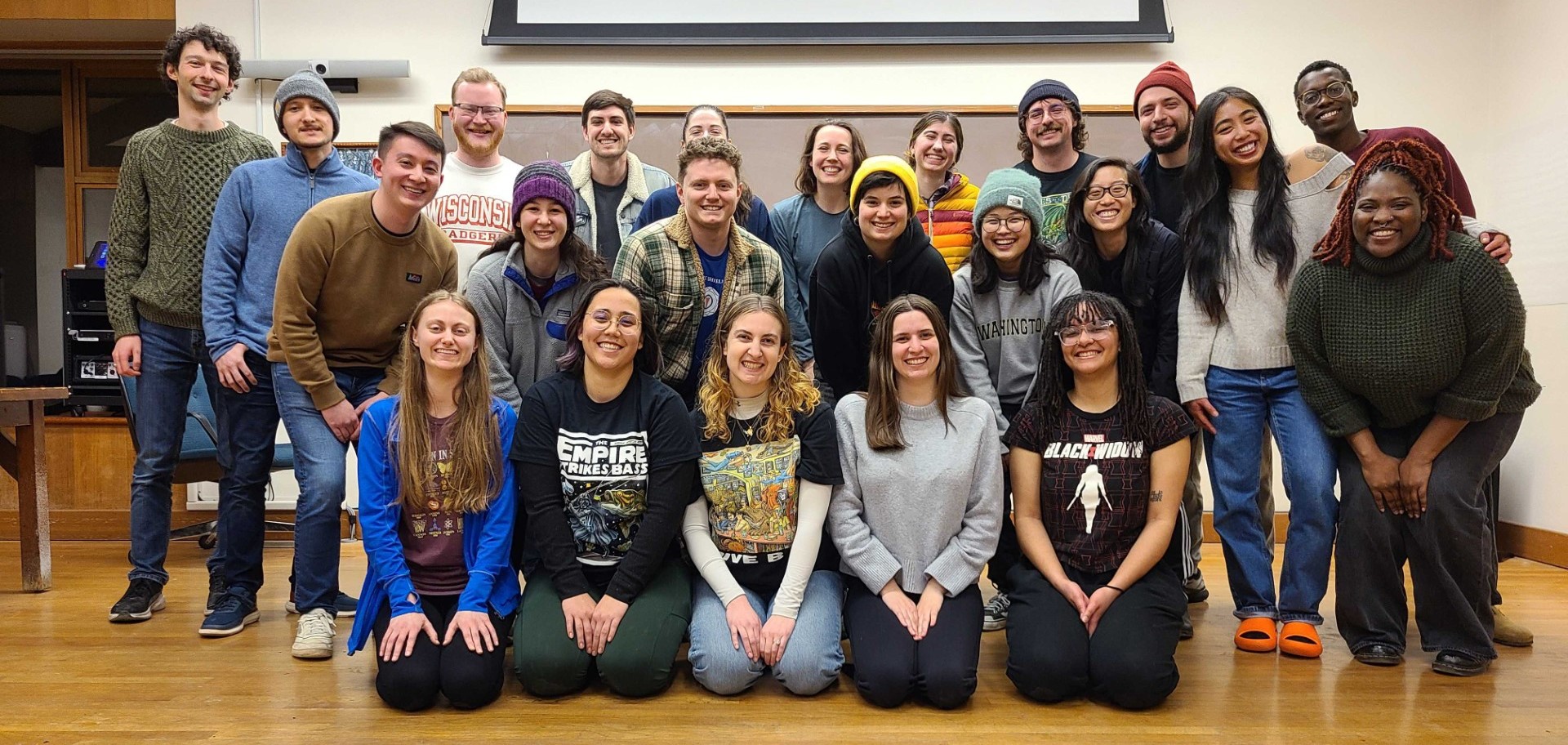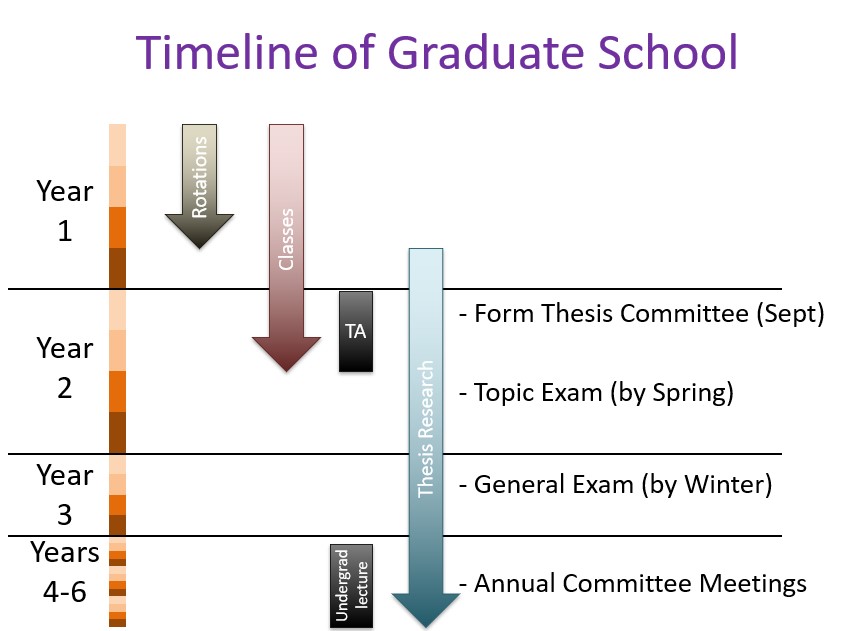Download the Microbiology Graduate Student Handbook, a comprehensive guide to our program.
The Microbiology Graduate Program aims to cultivate independent scientists equipped with specialized expertise obtained through the advancement of a specific area of Microbiology during their thesis research.
Upon completion of the program, graduates will have acquired the following skills and abilities, preparing them for diverse career opportunities including academia, industry, law, teaching, scientific writing, and more.
- critical thinking skills
- scientific knowledge
- effective written and oral communication abilities
- independent creative thinking capabilities
- a solid foundation in project management

The Microbiology Program requires that students earn their doctoral degree within six years of entering the program. There are four major components to graduate training:
-
Independent research in the lab of a member of the Microbiology Graduate Training Faculty. During the first year, students participate in 10-week research rotations in three laboratories. These rotations allow students to familiarize themselves with the research directions and cultures of individual laboratories and enable an informed selection of a thesis lab in the Spring Quarter of the first year. Progress in independent research under the guidance of a thesis advisor for the remainder of graduate school is assessed by annual meetings with the Ph.D. Supervisory Committee, which is formed in the second year.
-
Formal coursework and exams. During their first and second years, students take approved graduate courses in the Department of Microbiology and other biomedical departments. The curriculum includes several required core courses, with flexibility for electives tailored to individual interests. Students also attend a weekly Departmental seminar series. Beyond assessments in individual classes, all students complete two programmatic milestones: the Topic Exam in year 2 and the General Exam in year 3.
-
Science communication. Science communication at the Program level is fostered by annual presentations in the Departmental Work in Progress seminar series, which receive developmental feedback from faculty. Additional training provided by individual labs includes instruction in scientific writing through the publication of first-author papers, one or more of which are required prior to graduation.
-
Teaching. Teaching instruction and practice occurs in two stages. In the second year, students lead a section of a Microbiology undergraduate laboratory class. After the third year, students present a formal lecture in a Microbiology undergraduate lecture class. In both cases, students benefit from training with Departmental Teaching Faculty.
Throughout graduate school, students are supported by a multi-layered system. In addition to mentoring provided by their thesis advisor, the Ph.D. Supervisory Committee meets with students at least annually. The Graduate Program Advisor and the Departmental Graduate Policy and Advising Committee (GPAC) meet with groups of students at scheduled junctures and on an individual basis as needed throughout their graduate careers. Open and ongoing communication with the GPAC and Graduate Program Advisor (GPA) is encouraged throughout the program. There is a formal peer mentoring program in Microbiology to help students navigate the personal and professional challenges of graduate school. And there are multiple resources provided by the School of Medicine, the Graduate School, and the University of Washington.
General Timeline of the Microbiology Graduate Program
An approximate timeline for successful completion of the Ph.D. is as follows:
- Year 1: Rotations, classes, join Thesis Lab, and begin thesis research
- Year 2: Complete classes and TA-ship, form Ph.D. Supervisory Committee by end of Autumn Quarter, pass Topic Exam by end of Spring Quarter
- Year 3: Pass General Exam by end of Winter Quarter
- Year 4-6: Complete annual committee meetings, complete undergraduate lecture requirement, publish thesis research, defend thesis

Have Questions? Contact Us!
Please send any questions to our Graduate Program Advisor, microgpa@uw.edu.